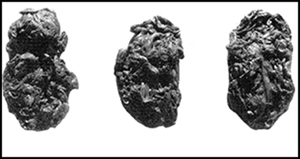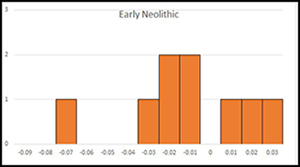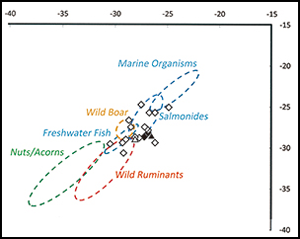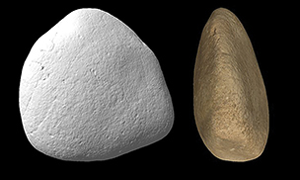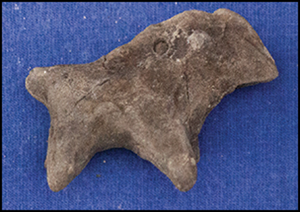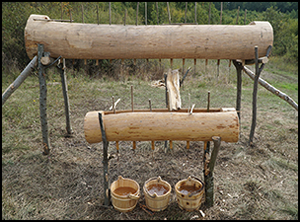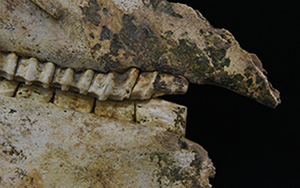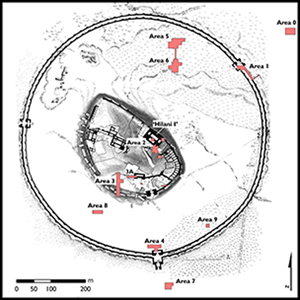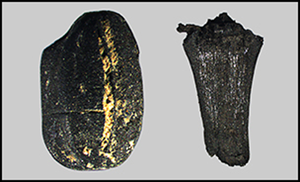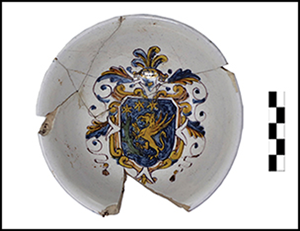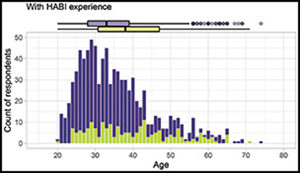Editorial
Editorial
-
- Published online by Cambridge University Press:
- 15 June 2023, pp. 513-523
-
- Article
-
- You have access
- HTML
- Export citation
Research Article
Monte Verde II: an assessment of new radiocarbon dates and their sedimentological context
-
- Published online by Cambridge University Press:
- 29 March 2023, pp. 524-540
-
- Article
-
- You have access
- Open access
- HTML
- Export citation
The Epipalaeolithic–Neolithic transition in north-eastern Iran: zooarchaeological evidence from the southern shores of the Caspian Sea
- Part of:
-
- Published online by Cambridge University Press:
- 31 March 2023, pp. 541-556
-
- Article
-
- You have access
- Open access
- HTML
- Export citation
Disaster, survival and recovery: the resettlement of Tanegashima Island following the Kikai-Akahoya ‘super-eruption’, 7.3ka cal BP
-
- Published online by Cambridge University Press:
- 14 April 2023, pp. 557-575
-
- Article
-
- You have access
- Open access
- HTML
- Export citation
In the bosom of the Earth: a new megalithic monument at the Antequera World Heritage Site
-
- Published online by Cambridge University Press:
- 14 April 2023, pp. 576-595
-
- Article
-
- You have access
- Open access
- HTML
- Export citation
Dense urbanism and economic multi-centrism at third-millennium BC Lagash
-
- Published online by Cambridge University Press:
- 31 March 2023, pp. 596-615
-
- Article
-
- You have access
- Open access
- HTML
- Export citation
A Bronze Age salt production technique from Transylvania and western Ukraine
-
- Published online by Cambridge University Press:
- 26 April 2023, pp. 616-635
-
- Article
-
- You have access
- Open access
- HTML
- Export citation
Elite chariots and early horse transport at the Bronze Age burial site of Shijia
- Part of:
-
- Published online by Cambridge University Press:
- 24 April 2023, pp. 636-653
-
- Article
-
- You have access
- HTML
- Export citation
New evidence for Middle Bronze Age chronology from the Syro-Anatolian frontier
-
- Published online by Cambridge University Press:
- 29 March 2023, pp. 654-673
-
- Article
-
- You have access
- Open access
- HTML
- Export citation
The early adoption of East Asian crops in West Asia: rice and broomcorn millet in northern Iran
-
- Published online by Cambridge University Press:
- 11 April 2023, pp. 674-689
-
- Article
- Export citation
Disease control and the disposal of infectious materials in Renaissance Rome: excavations in the area of Caesar's Forum
-
- Published online by Cambridge University Press:
- 11 April 2023, pp. 690-706
-
- Article
-
- You have access
- Open access
- HTML
- Export citation
Lost in temporal translation: a visual and visitor-based evaluation of prehistory displays
-
- Published online by Cambridge University Press:
- 15 June 2023, pp. 707-725
-
- Article
-
- You have access
- Open access
- HTML
- Export citation
Harassment, assault, bullying and intimidation (HABI) in archaeology: a Europe-wide survey
-
- Published online by Cambridge University Press:
- 02 May 2023, pp. 726-744
-
- Article
-
- You have access
- Open access
- HTML
- Export citation
Debate
Archaeoastronomy and the alleged ‘Stonehenge calendar’
-
- Published online by Cambridge University Press:
- 23 March 2023, pp. 745-751
-
- Article
- Export citation
Times they are a-changin’: a response to Magli and Belmonte
-
- Published online by Cambridge University Press:
- 02 May 2023, pp. 752-754
-
- Article
-
- You have access
- Open access
- HTML
- Export citation
Review Article
Digital heritage and archaeology in practice
-
- Published online by Cambridge University Press:
- 26 April 2023, pp. 755-757
-
- Article
- Export citation
Book Reviews
Pierre Gouletquer. 2022. Préhistoire du futur: archéologies intempestives du territoire. Toulouse: Anacharsis; 979-10-279-0448-8 paperback €9.
-
- Published online by Cambridge University Press:
- 06 March 2023, pp. 758-760
-
- Article
- Export citation
Alice Roberts, illustrated by James Weston Lewis. 2020. Human journey. London: Red Shed; 978-1-4052-9145-3 paperback £12.99.
-
- Published online by Cambridge University Press:
- 26 April 2023, pp. 760-762
-
- Article
- Export citation
Federico Manuelli & Dirk Paul Mielke (ed.). 2022. Late Bronze Age painted pottery traditions at the margins of the Hittite state: papers presented at a workshop held at the 11th ICAANE (München 4 April 2018) and additional contributions. Oxford: Archaeopress; 978-1-80327-202-3 eBook Open Access.
-
- Published online by Cambridge University Press:
- 24 April 2023, pp. 763-764
-
- Article
- Export citation
Jean Guilaine, Dominique Garcia, Jean Gascó & Enrique Aragón Nuñez. 2022. Rochelongue (Agde, Hérault): lingots et bronzes protohistoriques par centaines dans la mer. Montpellier: Presses universitaires de la Méditerranée; 978-2-36781-474-2 hardback €32.
-
- Published online by Cambridge University Press:
- 24 April 2023, pp. 765-766
-
- Article
- Export citation


